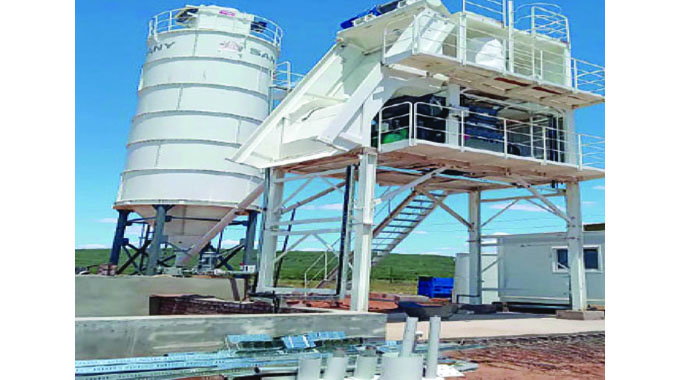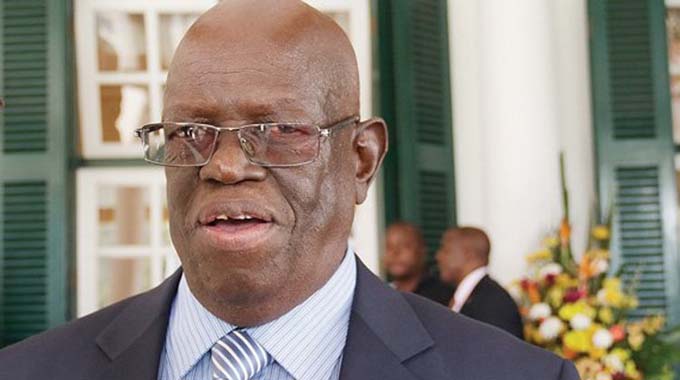Manhize steel attracts huge interest

Oliver Kazunga Senior Business Reporter
DINSON Iron and Steel Company (Disco), the Chinese firm developing the US$1,5 billion steel plant in Manhize, Mvuma, says it has been overwhelmed by inquiries for its products from the local and foreign markets.
The project, which will be Africa’s largest integrated steel plant, is anticipated to start production in August this year producing over 1,2 million tonnes of steel annually.
Last July, Disco announced that it was scouting for local and export markets for its products ahead of production.
Locally and in foreign markets, the company has signed agreements with offtakers in the iron and engineering industry as well as the foundry industry.
Disco project director Wilfred Motsi said in an interview “In terms of local markets, we are overwhelmed with a lot of inquiries from those industries within Zimbabwe and foundry and those in the metallurgy sector.
“Several of them have been approaching us, they want us to provide them with steel because they are citing that the steel which they are importing from outside the country is expensive.”
Following the closure of Zisco in 2008, the country has reportedly been spending US$400 million annually importing iron and steel.
“Obviously, the cost of production is on the high side locally because companies are importing iron and steel and this also ultimately affects the pricing of the finished products.
“So, within Zimbabwe the market is overwhelming before we start even talking about the foreign markets and once we start production, we are going to impact positively on the cost of production local firms are experiencing due to the importation of iron and steel,” he said.
“Steel is the backbone of any economy, so we have the market even outside the country in countries such as China where the market itself is very huge.
“We also have a ready market in Zambia and DRC (Democratic Republic of Congo),” he said.
Regarding the signing of export contracts, Mr Motsi said, nothing had been signed yet between his company and the prospective customers from the foreign markets.
“We haven’t signed anything as yet but we are optimistic that in the near future we will be signing contracts.
“For now we are still looking at the potential of the market before we engage these people …we are also looking at the products that are in demand in the foreign markets and that will guide us on how we can engage these markets.”
In a separate interview Zimbabwe Institute of Foundries chief operating officer Dosman Mangisi said the steelworks project in Manhize will be the hub of all raw materials for the sector and his organisation had already engaged Disco over raw materials supply.
“Disco on its own will be the biggest foundry in the country and also it will be the centre of raw materials. We have already engaged them for raw materials like ferro-chrome, pig iron, iron and steel and coking coal once they start production.
“The company’s existence will bring the cost of doing business down, as companies are currently importing iron and steel as well as other related products,” he said.
The Manhize steel plant, which was accorded a national project status by the Government is now 50 percent complete employing about 800 people, which figure is expected to rise 10-fold once production begins under the first phase of the project.
Asked about when Disco is expected to start hiring people ahead of first production, Mr Motsi said: “We have no specific time frame as to when we will be hiring the workforce like engineers, technicians, accountants and other people from different fields like administration and so forth. “But obviously, we will recruit massively before production starts.
“Zimbabwe is a country which has educated people and it’s not an issue to talk about and as you know we used to have a steel giant (Zisco) in Zimbabwe and now there is a pool of experienced people locally and within the Diaspora.
“So in terms of the skill base we have abundant skills including graduates from universities and thus in that regard, Zimbabwe is one of the best.”
Among other infrastructural development projects to come as a result of the Manhize steelworks, is the construction of a 50-kilometre railway line from Mvuma to the steel plant.
Disco has also signed a Memorandum of Understanding (MoU) with the Government to undertake refurbishment and construction of a 1000-km long railway system to provide a dedicated, reliable, uninterrupted and efficient railway line to carry the company’s products for local and export-imports routes.
Mr Motsi said they have been in talks with the National Railways of Zimbabwe (NRZ) and other partners he could not reveal as discussions have not been concluded yet.
“Apart from NRZ, we also have other partners that we are in talking terms with which l cannot mention at the moment because we are discussing and the deal has not materialised. But NRZ is on the forefront, they are giving us technical advice on railway line construction and upgrading.
“We have signed a MoU with the Government of Zimbabwe, so we have undertaken that we are going to construct, revamp and upgrade the railway line in Zimbabwe.
“We are walking the talk of what we have said and we continue to engage with the partners like NRZ, our key partner in railway development,” he said, adding that they have not established how much is required to construct and rehabilitate the railway infrastructure.
Meanwhile, Zesa, which will also construct a 100-km electricity transmission line from Sherwood sub-station in Kwekwe to Manhize steel plant, has announced that the power lines and substations for the project are now 80 percent complete.
The scope of work involves the construction of a high voltage 330KV power line and two 175MVA substations to power the giant steel company under a US$66 million loan.
Disco is set to be one of Zesa’s biggest maximum demand customers and is expected to consume 100MW at the initial phase which will be ramped up to 500MW.









Comments